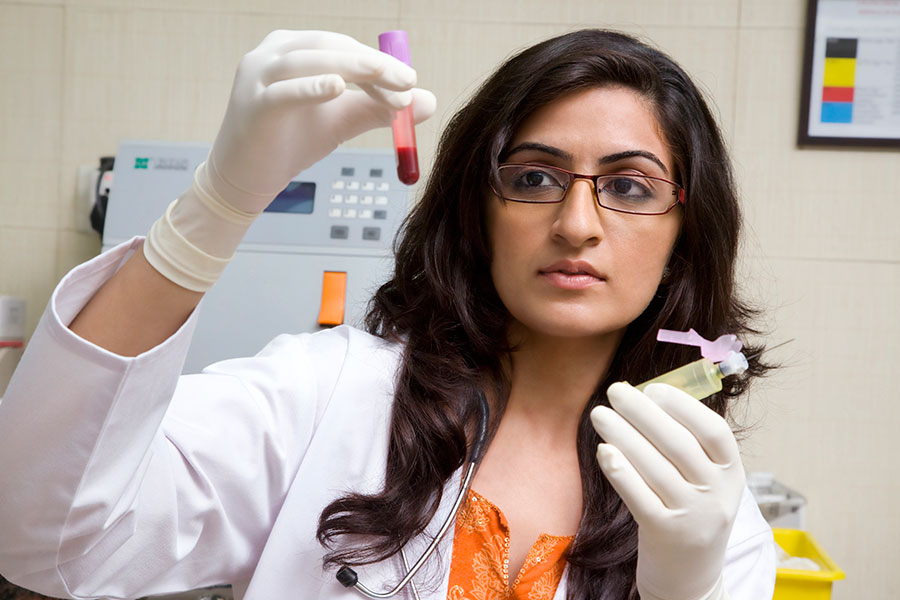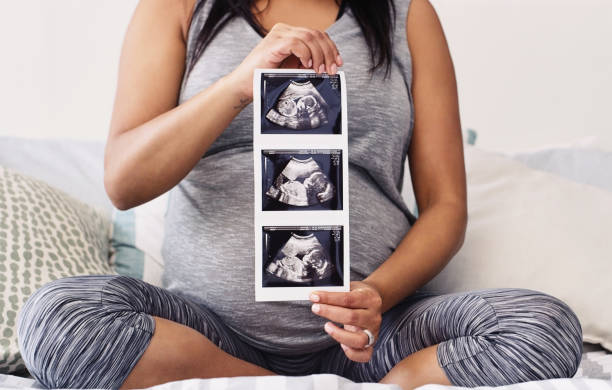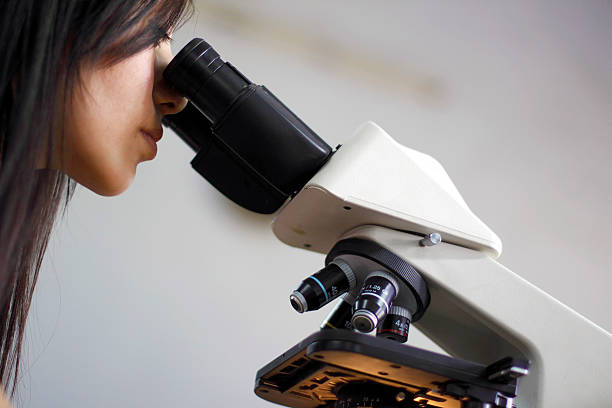Test for pregnancy: Why it matters

Pregnancy is a joyful experience but the barrage of tests that follows becomes a daunting affair for would-be parents. With growing bump, it becomes uncomfortable to climb the hospital stairs, but it is imperative to register for recommended test related to pregnancy to enjoy a healthy pregnancy.
In this article:
- Common Test for Pregnancy
- Pregnancy Test during First Trimester
- Pregnancy Test during Second Trimester
- Other Key Tests in Pregnancy
- FAQs related to Pregnancy Tests
Common Test for Pregnancy:
Generally, women are clueless on many aspects like, how often to test for pregnancy, when to test for pregnancy and what test is appropriate to determine early pregnancy. With our insights below, you can keep your frantic nerves at bay.
- A home pregnancy test is a routine test for pregnancy symptoms which is helpful to determine if you are pregnant or not. You can buy a urine test for pregnancy kit from a chemist to take this test. Morning time is best suitable as your urine is more concentrated.
- For accurate results, do this test about 6 to 8 days after ovulation. Also called as pregnancy test for one week, waiting for one week time after you missed the period is an ideal time to take this test.
- Blood test in early pregnancy – Once you have tried through urine test for pregnancy kit and you got the result as positive; in order to be doubly sure, you need to go to your doctor to take a blood test. This will confirm your pregnancy. A qualitative hCG is carried out to check for hCG and a quantitative hCG test will tell you how much amount of hCG is in your blood. This is generally carried out in the period of 10 days after conception.

Pregnancy Test during First Trimester:
This is the stage where fetal ultrasound and maternal blood test are involved. Both will help in identifying birth defects in your baby.
- Ultrasound:
- Nuchal translucency test – It is used to monitor the back area of fetal neck to know if there is increase or thickening of fluid in that area.
- Nasal bone screening - Between 11 to 13 weeks, this test is carried out to have a visual access of fetal nasal bone. This is to rule out disorders like Down Syndrome in baby.

- Maternal blood test:
- Plasma protein A screening in pregnancy – Your body undergoes many changes throughout pregnancy. Your placenta produces a protein in the initial months during pregnancy. Disorder in the levels lead to chromosomal issues. This test for pregnancy would provide you an understanding of such disorders.

Pregnancy Test During Second Trimester:
As months roll and initial screenings are done, second trimester follows with multiple marker tests. A blood sample is taken in this case between your 15 and 20 weeks of pregnancy.
- Maternal AFP – This test for pregnancy will throw open the gates for your doctor to check the level of AFP in your blood during pregnancy. A protein named AFP is present in the amniotic fluid. Abnormal levels of it may lead to Down Syndrome, neural defects and other chromosomal illnesses. If there are any issues in this test, to know accurate results, your doctor will recommend amniocentesis. Amniocentesis is an invasive procedure to know neural defects in your baby.
Other Key Tests in Pregnancy:
- Genetic screening - Genetic disorder is a big scare and if you or your partner’s family history hints on it, then you should get yourself tested. This is a key test for pregnancy to check if the genetic parameters of your baby are fine or not. Genetic disorders cause major upheaval or trauma for parents and children suffering from them. There are many genetic disorders like Hemophilia A, Sickle cell disease, Thalassemia etc. This will prepare you to know the outcome of type of genetic disorder as well as post-facto therapies that your baby needs to go through if he/she is affected by one.

- CBC test – Comes under the roof of early pregnancy tests, this test helps to understand number of white and red blood cells that you possess. Other parameters like hemoglobin level, hematocrit and platelet are identified through this test.
FAQs related to Pregnancy Tests:
How often is ultrasound performed during pregnancy?
Ultrasound is carried out several times during pregnancy. During first trimester, it will give you an idea about your due date and detect any fetal issues. At the time of second trimester, the ultrasound test for pregnancy will determine the amniotic fluid, give you a view of fetal behaviour and growth. And last but not the least, third trimester ultrasound will help in understanding your baby’s position and the fluid surrounding the fetus.
What is the next step if my urine test for pregnancy kit shows positive?
If test results are positive, you will be giddy with excitement. In the process of embracing the moment, do not forget to make an appointment with your doctor. Your doctor will tell you how many weeks, what would be the due date of your delivery, the tests you are supposed to take in the following months etc. She will also guide you towards an expert dietician. Make an appointment with consult with the expert to have an inside view of the essential pregnancy nutrition supplements you are supposed to take and pregnancy nutrition plan to follow. Take your prenatal vitamins, folic acid and good helping of well-balanced nutritional diet without fail to enjoy a safe and sound pregnancy
Summary:
As much as pregnancy gives you joy and bliss, it is also a tricky period. With advancement in science, there are many tests available to protect you and your baby from untoward situations. Ignoring the guidance of medical fraternity by not taking the recommended tests will pose harm and potential danger to both, you and your baby’s life.
Leave a Comment
Blogs
Popular Posts
Get the latest from Newmi
Subscribe to get Email Updates!
Thanks for subscribe.
Your response has been recorded.
COPYRIGHT © 2023 KA HEALTHCARE PVT LTD - ALL RIGHTS RESERVED.
Disclaimer: NEWMI CARE does not cater to any medical/Pregnancy or psychiatric emergencies. If you are in a life-threatening situation, please do NOT use this site. If you are feeling suicidal, we recommend you call a suicide prevention helpline or go to your nearest hospital.

0 Comment